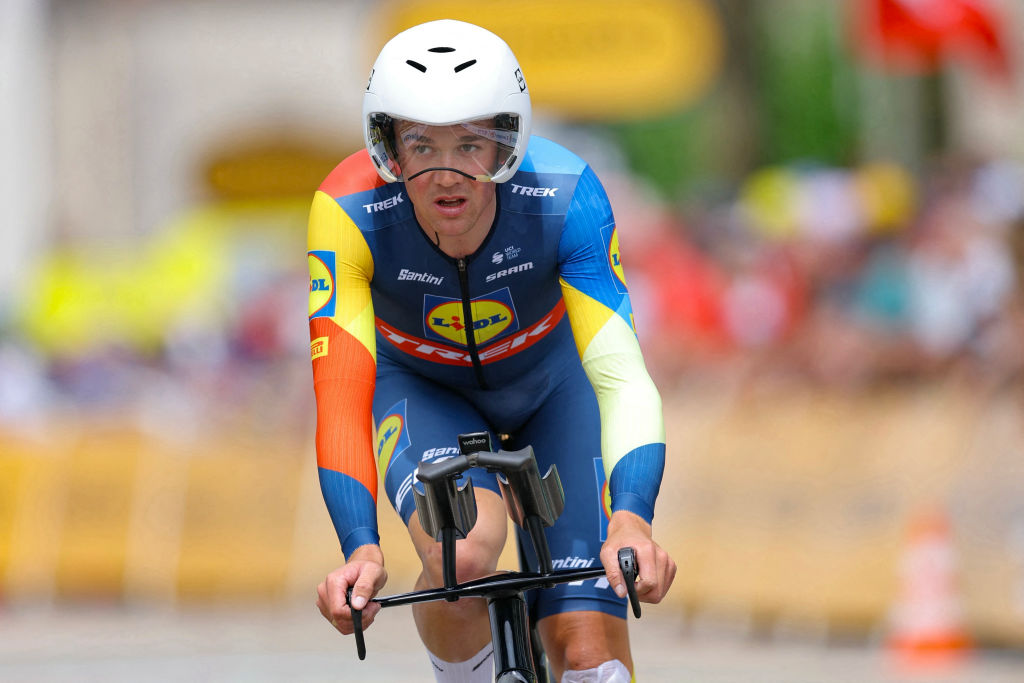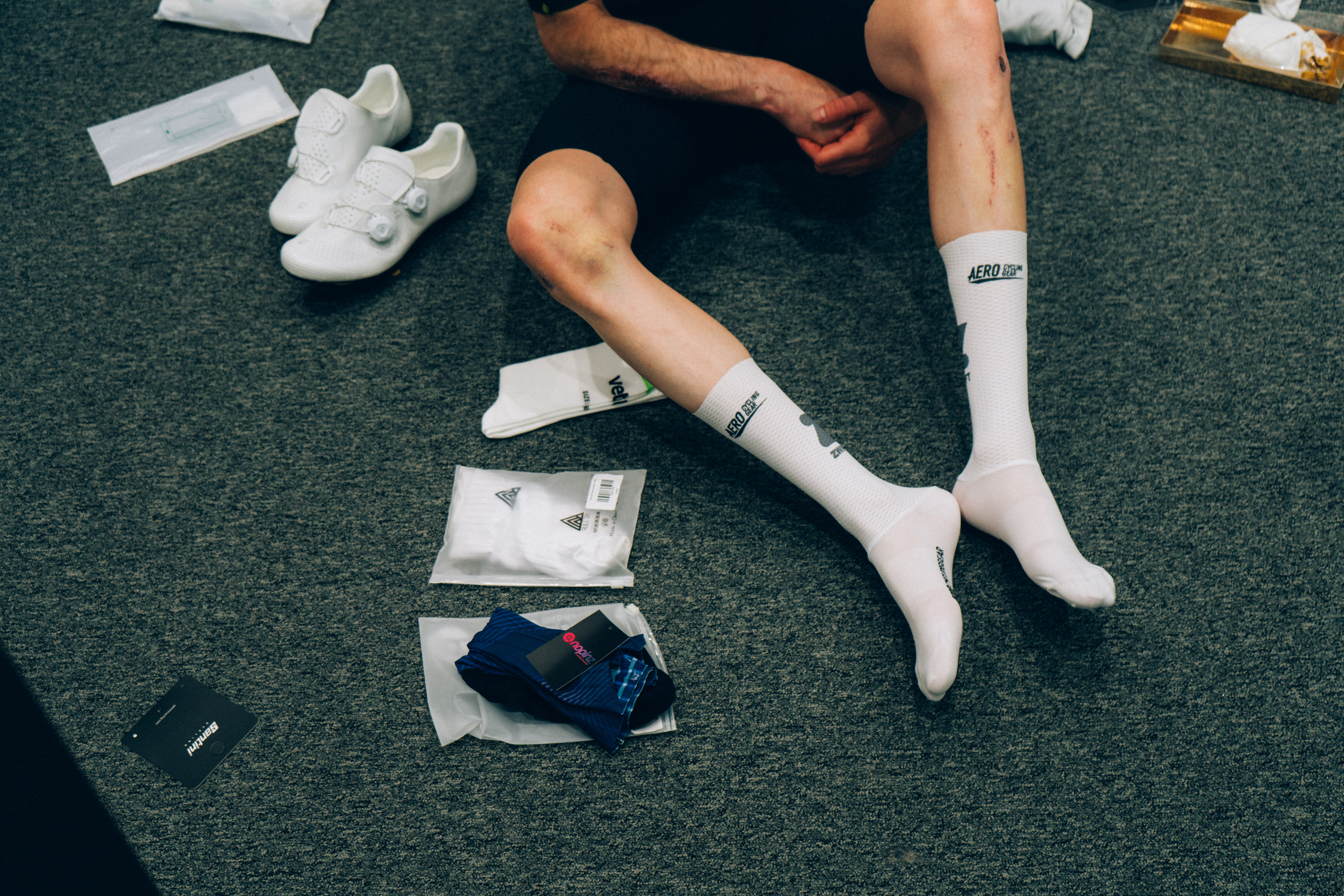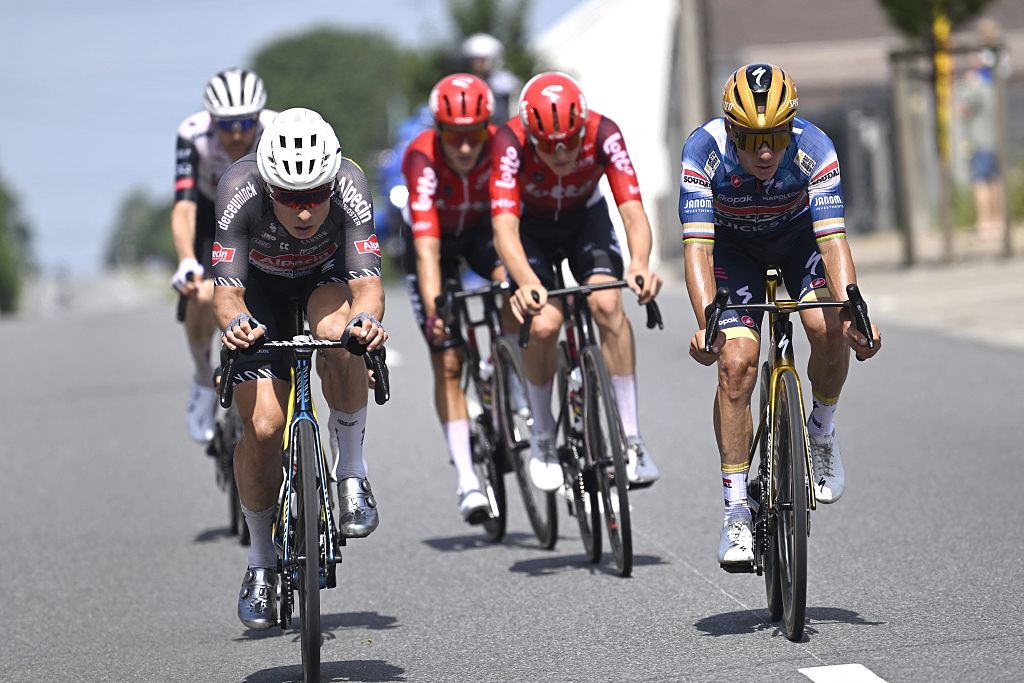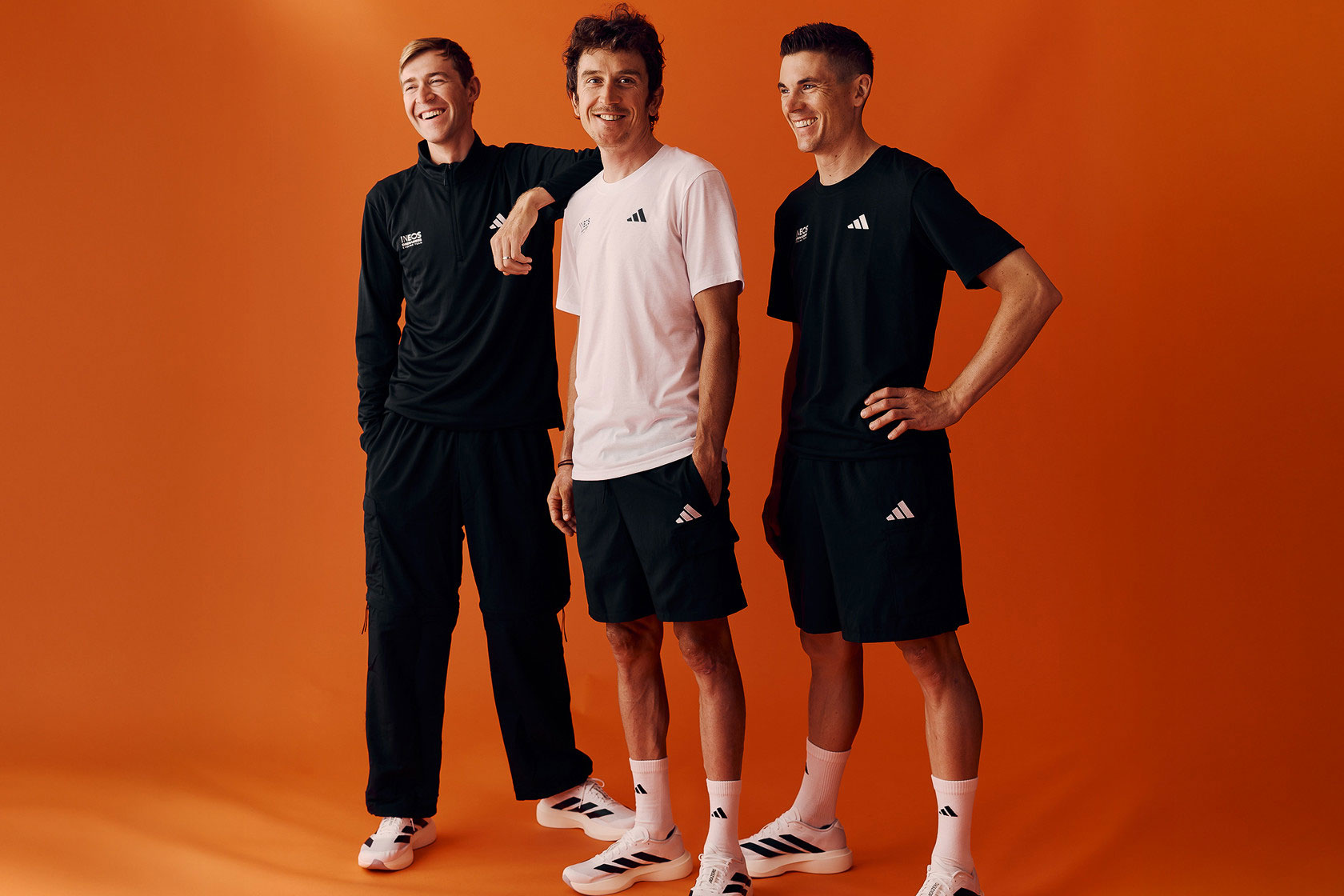Chris Froome, Peter Sagan and Richard Carapaz headline Volta a Catalunya
Stellar field face first flat time trial since 1998, tough new ascent to Montjuic
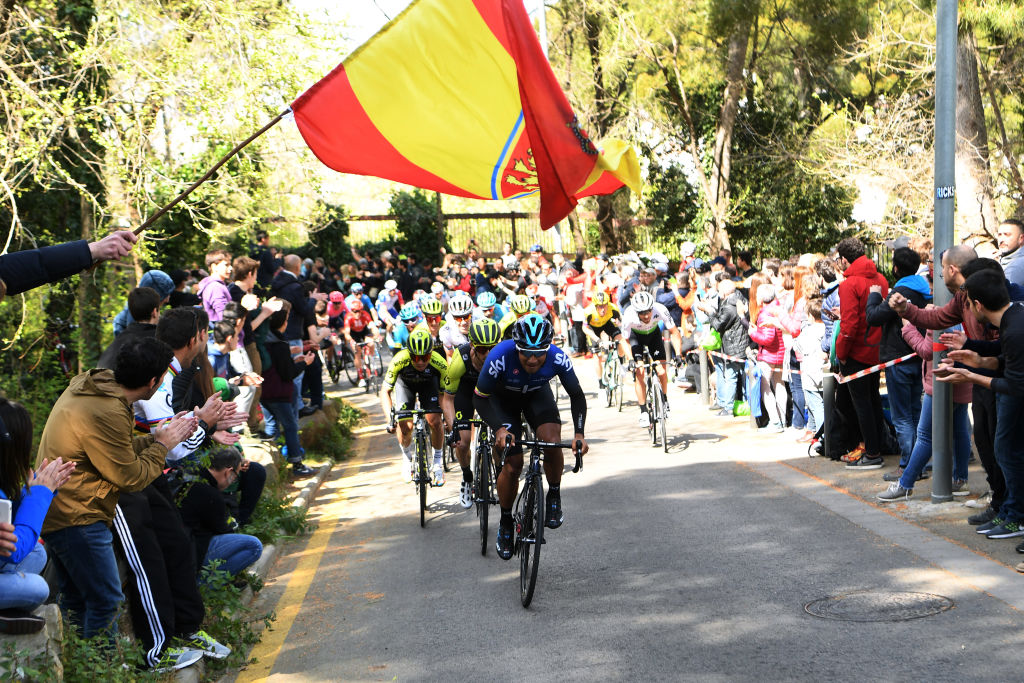
Appropriately enough for its centennial edition, this year’s Volta a Catalunya will have an impressively star-studded lineup, with Chris Froome (Israel Start-Up Nation), Peter Sagan (Bora-Hansgrohe) and Richard Carapaz (Ineos Grenadiers) among the many top names present for one of the most challenging Voltas in years.
The week-long Volta a Catalunya, the fourth oldest race in the world, was one of the first WorldTour races to be cancelled in the spring of 2020 because of soaring COVID-19 coronavirus figures in Europe. But Spain has, so far, been relatively unaffected by the latest Euro-wide surge in COVID-19 infections, and although restrictions remain in force with no public allowed at starts or finishes, on Monday in the coastal town of Calella the Volta peloton will finally tackle the route first published some 15 months ago.
Monday’s stage, a loop through the hills of eastern Catalonia and finishing in Calella, is probably the most familiar, given both town and stage have played host to the Volta’s Grand Depart every year since 2012, although this March is apparently the last time that’ll be the case.
Either way, with the hills inland of Calella tending to split the peloton into two or three but not cause a major sort-out, it would be surprising if the stage’s slightly uphill, dead-straight city centre finish did not end in a bunch sprint of around 50 or 60 riders for one last time.
However, on stage two, things change drastically from the usual Volta script, with an 18-kilometre individual time trial in the town of Banyoles. If a time trial doesn’t sound so groundbreaking, this is actually the Volta’s first ‘standard’ medium-length ITT since Chris Boardman won on a similarly flat 18.5-kilometre circuit round the nearby city of Gerona, way back in 1998. Since then, there’s been a mountain time trial, all uphill, in 2007 and a prologue as recently as 2010, but no other individual chronos at all in the last decade.
“It’s mostly rolling terrain, although there’s a nasty little climb about three kilometres from the finish, which will ensure the teams have to think hard about the best strategy and equipment for the course,” Roberto Benet from the Volta’s technical department told Cyclingnews. The outcome of the TT will also likely shape teams’ strategies for the two most difficult stages of the race that follow afterwards in the Pyrenees.
The first ‘proper’ Pyrenean stages of the season begin on the third day of the Volta. This year, avoiding the ski station finish of La Molina for the first time since 2013, stage three ends at the top of the tough 11.4-kilometre Hors Category ascent to Valter. But while Valter is the single classified climbing challenge of stage three, stage four is much tougher, featuring an early ascent to the first category Port de Toses then two HC climbs, the Cantó and a second summit finish on the 18.5-kilometre Port Ainé. By Thursday evening, the GC should have been clearly established and there will be a firm favourite for overall victory three days later.
However, unlike countless previous recent editions of the Volta where the last three days’ racing changed next to nothing on GC, thanks to some important route changes, this year should be radically different.
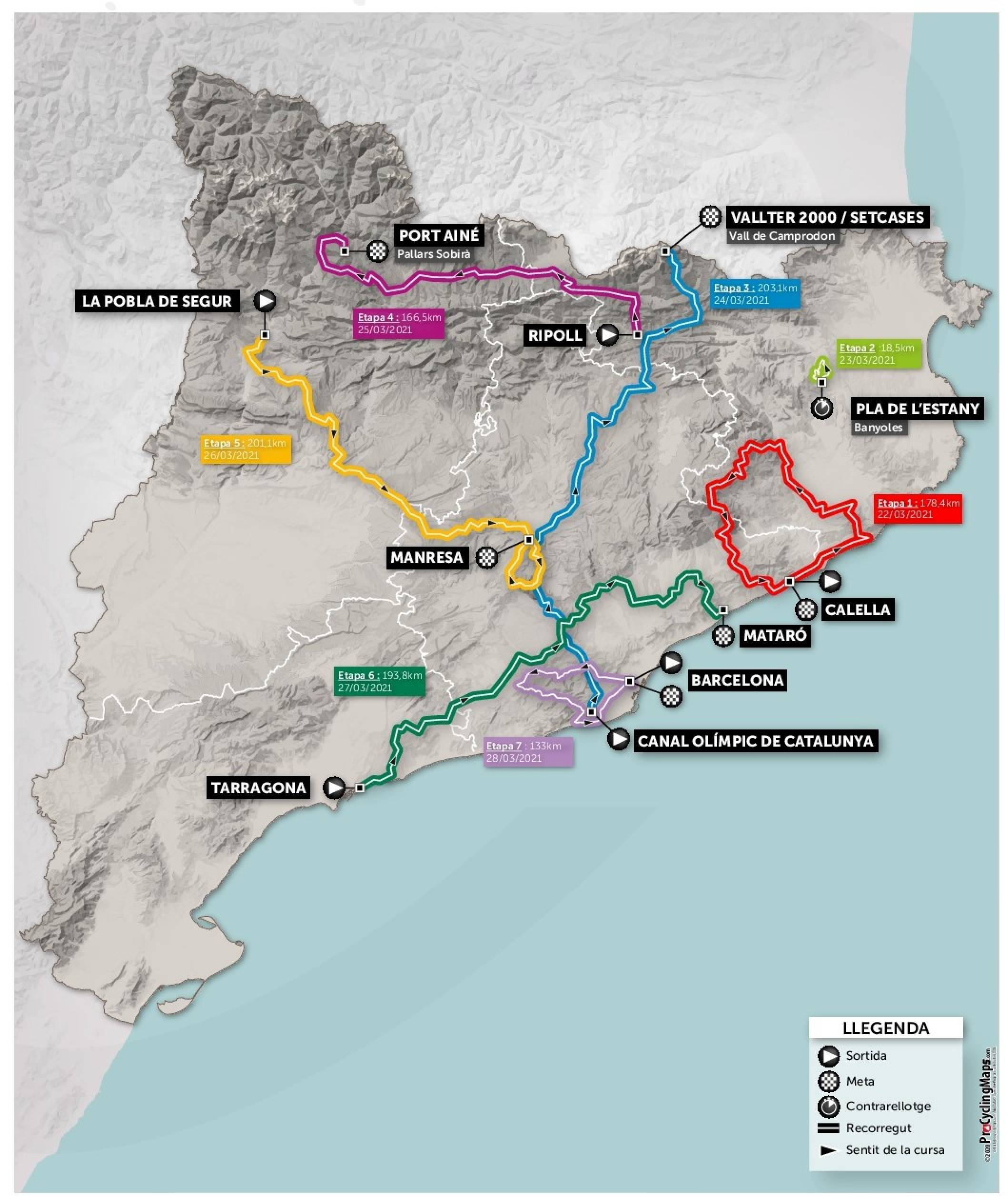
“Stage five features an important late climb, the first category Port de Monserrat, which is a really tough one, and there’s going to be a fast descent to the finish 25 kilometres further on,” Benet told Cyclingnews.
Even if the Volta’s final showdown will still consist of multiple laps through the central Barcelona park of Montjuic, the last stage, too, has been remodelled radically. Rather than the fairly gentle ascent at the start of each circuit as per previous years, instead the riders will find themselves tackling the climb that goes up to Montuic Castle. The main feature of the sadly defunct Subida a Montjuic hill climb, of the current Volta peloton, probably only Spain’s Alejandro Valverde, whose career stretches back to 2002, will have raced on that ascent before, making it unknown territory indeed.
“It’s really hard, although on paper it’s 2.5 kilometres long, the real challenge is a 600-metre stretch with ramps of up to 18 per cent,” Benet said. “The road surface is good, it’s not too technical, and the descent back to the finish is basically the same one as other years. But the climb is another story altogether and it’ll make for a much more unpredictable finish.”
With its time trial, two tough Pyrenean stages, the ‘ambush’ stage five with the very late stage and Montjuic all packed into a week, it’d be surprising if there weren’t some significant differences on GC come next Sunday.
Time bonuses, too, look set to play an important part, given that apart from bonuses of 10, 6 and 4 seconds at each finish, there are 3, 2 and 1-second time bonuses on three intermediate sprints in each road stage. One of these will form part of another competition specific to this year’s race, too. Dubbed the ‘centenary intermediate sprint’, it’s the Volta’s way of paying homage to different key names in its history.
Key riders
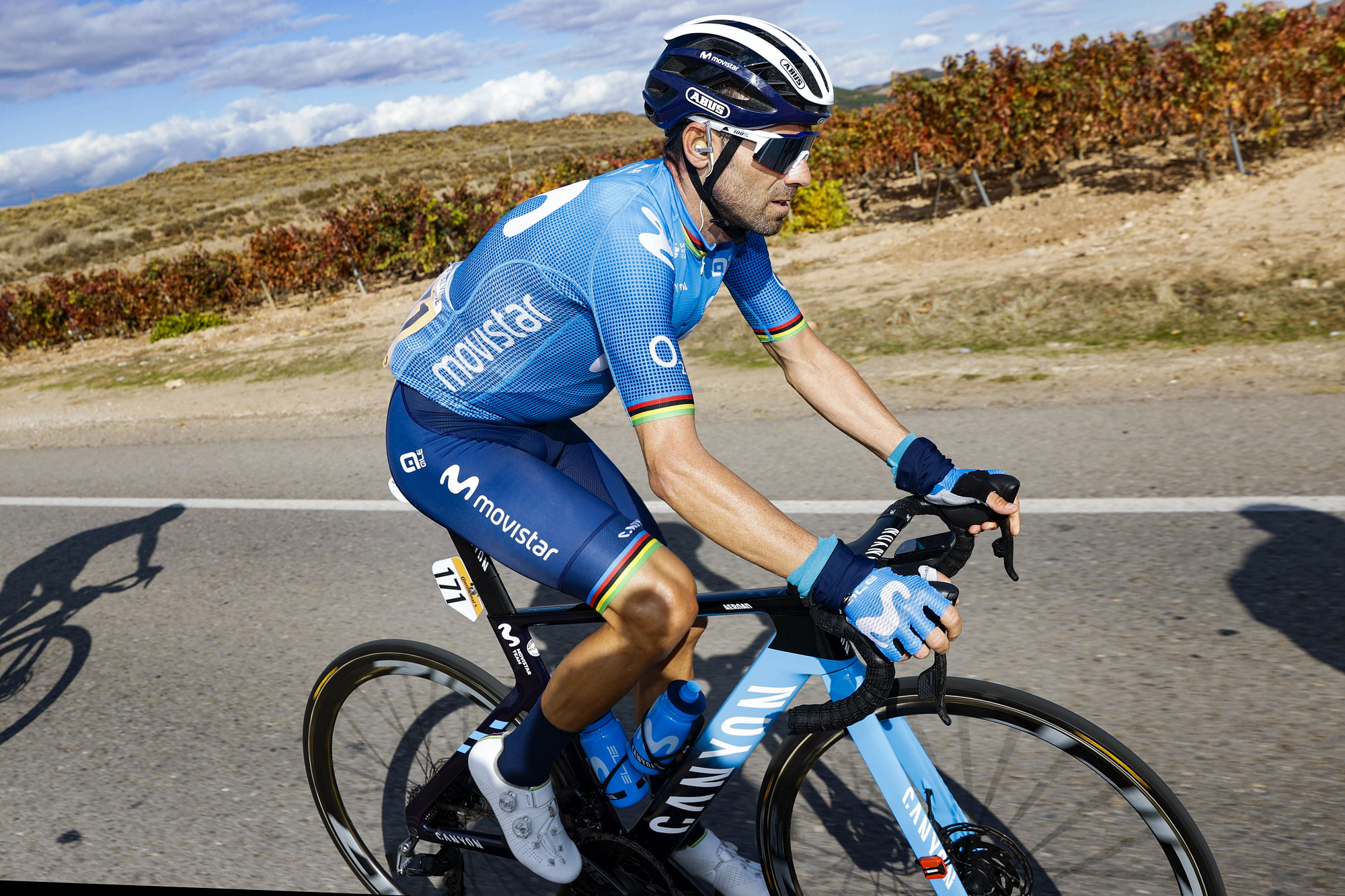
One of the stars named in a sprint is actually taking part: Valverde, not firing on all cylinders yet this season but a former triple winner of Catalonia, heading an ultra-strong Movistar squad. This also includes Enric Mas and local hero Marc Soler, although defending champion Miguel Angel López, still regaining full strength after catching COVID-19 earlier this year, will not be taking part.
Froome returns, too, to a race that he always used during his build-up for the Tour when with Sky and Ineos. It’s true Froome’s truly shone only once in the Volta, in a memorable mountain performance that netted him second behind Valverde at Lo Port in 2017. But as a four-time Tour winner, and with a time trial potentially in his favour as well, it’d be more than unwise to rule Froome out from the word go.
At the opposite end of the age spectrum, 2020 Giro d’Italia hero João Almeida (Deceuninck-QuickStep) will be keen to build on his solid Tirreno-Adriatico performance to perhaps become the first ever Portuguese rider to win the 100-year-old Volta. Interest will also be high, too, in how another up-and-coming racer, Marc Hirschi (UAE Team Emirates) peforms in his debut for his new team.
Yet another rider heading into race action for the first time this season at the Volta will be Ecuador’s Carapaz. Last seen finishing second in the 2020 Vuelta a España, Carapaz will use Catalonia as his first racing reference point en route to being one of three leaders for Ineos Grenadiers in the Tour de France.
A late addition to Catalonia will be Sagan. Fourth in Milan-San Remo, the Bora-Hansgrohe champion’s best chance of victory will come on stage one or perhaps on the Classics-like short but steep slopes of Montjuic if he is in top form. However, Sagan may prefer simply to race in support of teammate Wilco Kelderman, making his season debut after his horrendous training accident earlier this year.
The list of top candidates, though, doesn’t stop there, running from Mike Woods and Dan Martin (Israel Start-Up Nation) through to Richie Porte and Adam Yates (Ineos Grenadiers), Hugh Carthy and Rigoberto Urán (EF Education-Nippo),= Simon Yates and Lucas Hamilton (Team BikeExchange) Giro d’Italia runner-up Jai Hindley (Team DSM) and a powerful Jumbo-Visma team headed by trio Steven Kruijswijk, Sepp Kuss and George Bennett. Nairo Quintana (Arkea-Samsic), too, turned in a respectable ride in Tirreno-Adriatico, and will be keen to make an impact in a race he won back in 2016. Two other former winners also present are Richie Porte (2015) and Dan Martin (2013), while Rohan Dennis (Ineos Grenadiers) could well shine on Tuesday’s time trial and, if his 2020 Giro is anything to go by, perhaps in the mountains as well.
If it looks all but certain the sparks will fly in Catalonia this week with such a high-quality field, the one key unknown factor is the weather. Sudden snowfalls have blighted previous stages into the Pyrenees of the Volta on multiple occasions in the past, most recently in 2018, when the ascent to Vallter was cancelled and the stage finished instead at the foot of the climb.
But fortunately, with the return of the ITT and such a tough final weekend, there are plenty of other opportunities for a major GC battle to unfold, whichever roads the centenary edition of the Volta a Catalunya finally takes.
The latest race content, interviews, features, reviews and expert buying guides, direct to your inbox!
Alasdair Fotheringham has been reporting on cycling since 1991. He has covered every Tour de France since 1992 bar one, as well as numerous other bike races of all shapes and sizes, ranging from the Olympic Games in 2008 to the now sadly defunct Subida a Urkiola hill climb in Spain. As well as working for Cyclingnews, he has also written for The Independent, The Guardian, ProCycling, The Express and Reuters.
Latest on Cyclingnews
-
Mads Pedersen narrowly avoids disaster in crash with spectator during Danish Time Trial Championships win – Video
29-year-old knocks spectator over after being forced to evade slow police motorcycle during 41km race -
We took 16 pairs of aero socks to the wind tunnel to find which was fastest, and we're still shocked by the results
From Assos and AeroCyclingGear to NoPinz, Rule2, Sockeloen and Velotoze, we tested all the best aero socks on the market to find out whether all aero socks are created equal -
'You don't win a Championships like that' – Remco Evenepoel slams Lotto and other rivals for Belgian Nationals road race tactics
Strongest rider of day has to settle for second, 38 seconds down behind lone winner Tim Wellens -
Ineos Grenadiers 'bring a fresh look and feel to the pro peloton' ahead of Tour de France with new clothing sponsor
British squad 'celebrates the collective power of the team in style' with German brand Adidas

